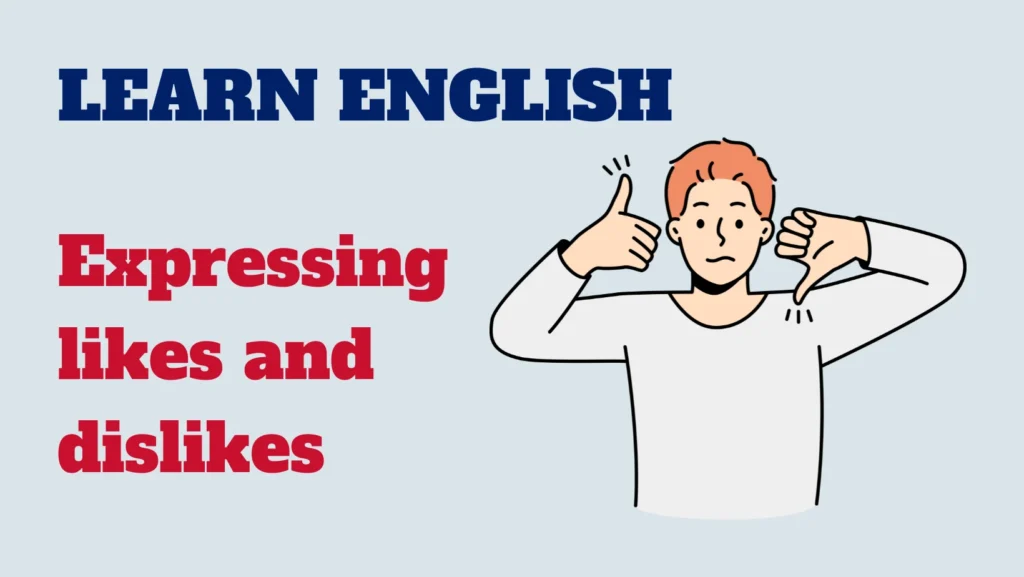When mastering a new language, it’s important to express your likes and dislikes. This entails the exploration of various phrases and idioms that encapsulate the spectrum of emotions related to personal preferences.

In this lesson, we’ll explore different ways to say you like or dislike something in English, using appropriate words and expressions to communicate your opinions.
Expressing love for something:
I love that:
This expression shows that you really enjoy something.
Example:
“I love animated movies.”
That’s fantastic:
Use this phrase to express your enthusiasm for something.
Example:
“The view from this mountain is fantastic.”
I really like that:
This phrase indicates that you have a strong affection for something.
Example:
“I really like contemporary dance.”
That’s great:
A common expression to show your admiration.
Example:
“Your chocolate cake was great!“
That’s wonderful:
Use this expression to convey your amazement.
Example:
“It’s wonderful to see so many flowers in bloom.”
Expressing dislike for something:
I don’t like that at all:
Indicates that you don’t appreciate something at all.
Example:
“I don’t like mushrooms at all.”
That’s disappointing:
Use this phrase to express your disappointment.
Example:
“The result of the match was disappointing.”
It’s not really my thing:
This expression means that something is not your preference.
Example:
“Horror movies are not really my thing.”
I’m not a fan:
Indicates that you’re not a big admirer of something.
Example:
“I’m not a fan of techno music.”
I can’t stand it:
Use this expression to express your intense aversion.
Example:
“I can’t stand the sound of honking horns.”
Expressing indifference or neutrality:
I don’t mind:
Use this phrase to indicate that you don’t have a particular preference.
Example:
“Do you prefer coffee or tea?” “I don’t mind.”
I don’t have an opinion:
This phrase shows that you don’t have a strong opinion on something.
Example:
“I don’t have an opinion on the choice of the restaurant.”
I’m not really sure:
Indicates that you’re not sure about your opinion.
Example:
“I’m not really sure if I prefer the mountains or the beach.”
Expressing your likes and dislikes in English is essential for effective communication and sharing your opinions. Choose the response that best fits your feelings, and feel free to explore other words and expressions to enrich your vocabulary. Practice regularly to become more comfortable expressing your preferences in English. Happy practicing!



